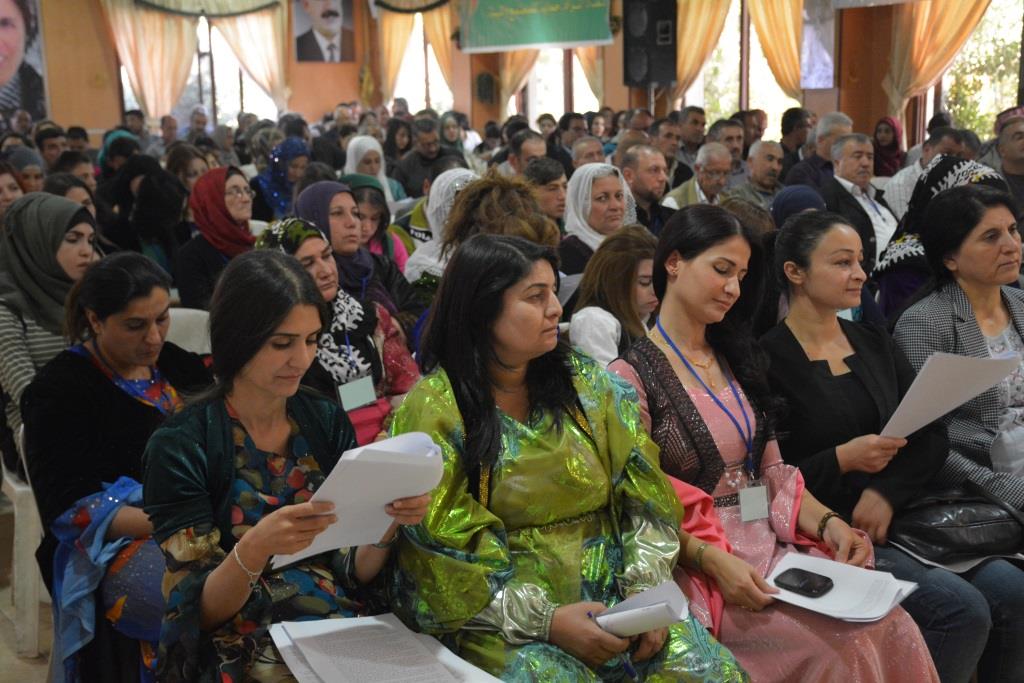Many important decisions were made at the First Conference for Co-operatives in North-Syria, which was held in Paradise Restaurant in Derik [Dêrik / Al-Malikiyah] city, in the province of Qamishlo. The conference was held under the slogan “Co-operatives will be the foundation of society in North Syria.” The conference was attended by almost 200 members from the three cantons in northern Syria.
There were many discussions in the conference, and the members gave their opinions about developing co-operatives and making them more successful. There was a reading in both Kurdish and Arabic of the Interior System of Cooperatives, which consists of six Articles. After many discussions of the the Six Articles, a committee was elected to collect the opinions and suggestions made in the conference, and add them to the Interior System of Cooperatives in North Syria.
Some of the most important decisions that were made in the conference about developing cooperative societies were:
- The media should show a program about cooperatives at least once a week.
- Enrol administrators of cooperatives into academic courses.
- Enrol members of the House of Cooperatives on academic courses.
- Reduce the number of members in Hevgirtin.
- Form co-operative societies for raising poultry.
- Form livestock co-operatives in villages, whose members are from the villages.
- Form medicine cooperatives.
- Form greenhouse cooperatives.
- The products of co-operatives should be sold by Hevgirtin.
- Organise the structure of co-operatives according to the federalist system.
- Every cooperative should have a special internal system.
- The electricity generator co-operatives must not pay rent to the municipality.
- Reassess all the co-operatives that exist in the internal system.
- Rewrite the Internal System of Cooperatives.
- Reassess the structures of existing co-operatives.
- Form local cadres that are specialised in co-operative societies.
- Establish a research centre to study co-operative projects and organise training courses.



